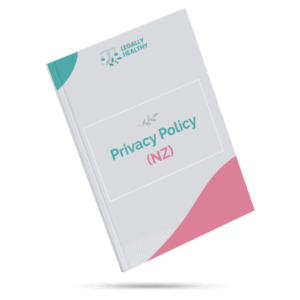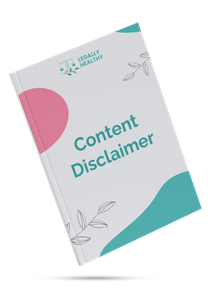ChatGPT has become a game-changer for business owners, offering quick content creation, automation, and even client communication support. But when it comes to using AI in a health and wellness business, there are serious legal considerations you cannot afford to ignore.
If you are using ChatGPT for client interactions, blog content, or functional test analysis, here is what you need to know to protect your business from legal risks.
1. Privacy Risks and Handling Client Data
Health practitioners often deal with sensitive client information. If you are using ChatGPT to help draft client emails, treatment plans, or functional test reports, you may be unknowingly breaching privacy laws.
- AI systems like ChatGPT store data, meaning any confidential client details entered could potentially be retained and accessed by third parties.
- Australian and New Zealand privacy laws apply. Under the Australian Privacy Act and New Zealand Privacy Act, businesses handling personal or health information must ensure secure and confidential storage.
How to Stay Legally Compliant
- Never input identifiable client information into AI tools.
- Use secure, encrypted platforms for handling client data.
- Have a Privacy Policy in place to outline how you manage and protect client information.
Need a legally compliant Privacy Policy? The Legally Healthy Privacy Policy Template ensures your business meets Australian and New Zealand privacy laws.
2. Copyright Issues: Who Owns AI-Generated Content?
If you use ChatGPT to create blogs, ebooks, or course content, who actually owns that material? The answer is not always straightforward.
- AI-generated content is not protected under copyright law. This means anyone could technically copy, reuse, or claim ownership of AI-created work.
- Plagiarism risks exist. ChatGPT generates text based on pre-existing online content, meaning it could unintentionally copy someone else’s work, leaving you open to copyright infringement.
How to Protect Your Content
- Manually review and edit AI-generated text before publishing.
- Use an Article/Blog Disclaimer to clarify that your content is for informational purposes only and does not replace professional advice.
- If you create original content with AI assistance, consider trademarking key elements of your brand to protect your work.
Cover yourself legally with the Legally Healthy Article/Blog Disclaimer Template—ensuring your content is properly protected under Australian and New Zealand law.
3. Liability Risks: Is AI Giving the Right Advice?
AI tools cannot think critically like a human, meaning they can generate misleading, inaccurate, or even legally risky advice. If you rely on AI for client education, social media, or website content, be aware of these risks:
- Medical misinterpretation – ChatGPT does not fact-check health advice, which could lead to incorrect information being shared with clients.
- Legal liability – If a client acts on AI-generated advice that leads to harm, you could be held responsible.
How to Reduce Your Risk
- Always fact-check AI-generated content before sharing it.
- Use disclaimers on your emails, articles, and website to limit liability.
- Make it clear that AI-generated content is not professional advice.
Protect yourself with the Legally Healthy Email Disclaimer Template and Article/Blog Disclaimer Template, ensuring you have the right legal protection in place.
4. Ethical and Professional Risks
As a health professional, using AI-generated content could impact your credibility and professional integrity.
- Many industry bodies and regulatory authorities have not yet set clear rules around AI use, meaning it is best to err on the side of caution.
- Clients trust you for expert knowledge—so blindly relying on AI could undermine your authority and expertise.
Best Practices for Ethical AI Use
- Use AI only as a tool, not as a replacement for your professional judgment.
- Be transparent with clients if AI has contributed to written materials.
- Follow industry guidelines and professional body recommendations.
Final Thoughts: Keep AI Use Smart and Legally Safe
ChatGPT can be incredibly helpful, but without the right legal protections, you could be exposing your business to privacy breaches, copyright issues, and liability risks.
To stay legally protected:
- Use disclaimers for AI-generated content and client communications.
- Never enter client-sensitive data into AI tools.
- Ensure your privacy policy, terms, and agreements are legally sound.
Need legal templates to protect your business? Legally Healthy offers lawyer-drafted templates for Australia and New Zealand—so you can use AI safely while staying compliant.
Check out our full range of legal templates and ensure your business is legally protected today.
Featured Products
-
Privacy Policy Template (AUS)
Original price was: $120.00.$97.00Current price is: $97.00. Incl GST -
Privacy Policy Template (NZ)
$97.00 -
Content Disclaimer Template
$37.00 Incl GST



